Best backpacks for cycling 2026: robust and durable rucksacks for commuting and more
One of the most flexible and convenient ways of carrying luggage is with a backpack designed for cycling.
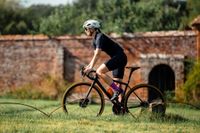

The latest race content, interviews, features, reviews and expert buying guides, direct to your inbox!
You are now subscribed
Your newsletter sign-up was successful
For commuters there are a number of ways to carry your necessities to and from work, including a backpack. However, unlike a regular model, the best backpacks for cycling are designed with riding in mind. This typically leads to a more comfortable journey, thanks to better ventilation and a fit that doesn’t impede your riding.
While the best pannier bags and bikepacking bags are ideally suited to carrying heavier loads, a backpack is more convenient if you use more than one bike. They are also easy to store once at work, and can be used on foot or on public transport if you have meetings at another location, for example.
So what are the features you should expect from one of the best backpacks for cycling? They tend to offer around 15 to 30 litres of storage and have dedicated compartments to carry laptops. They often have some kind of weatherproofing, including waterproof zippers, and some reflective details. Other features might include a chest or waist strap and storage for a drinks bottle.
Our team of experienced reviewers, many who commute regularly, have tested a number of backpacks and have selected their favourites, with a view to help you find the best backpack for cycling for you.
The quick list
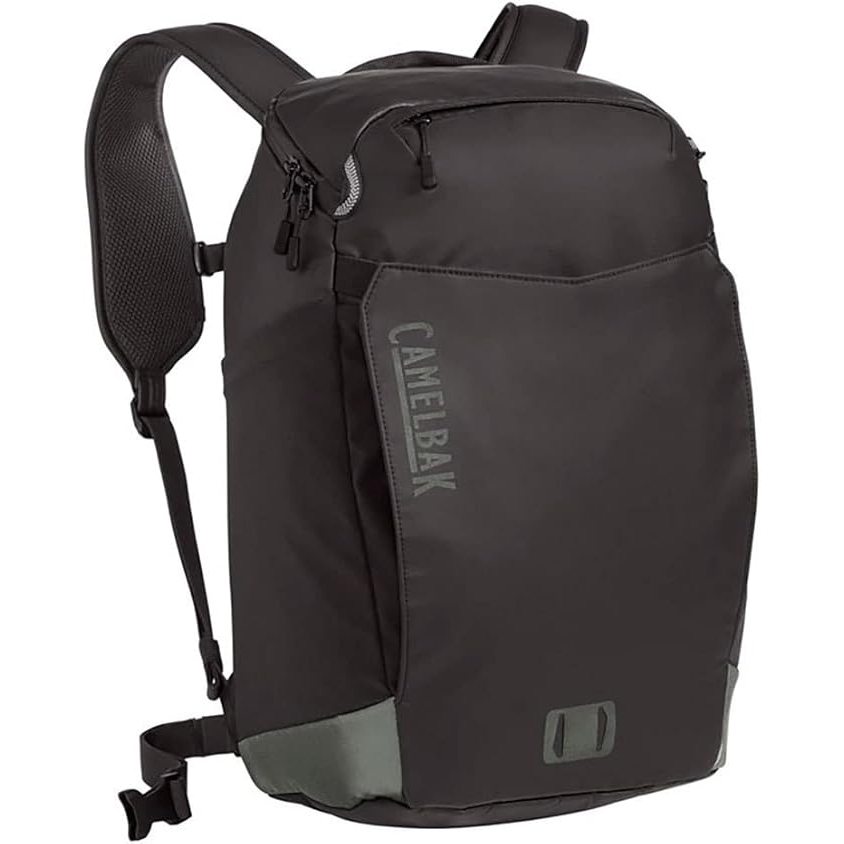
The evergreen MULE combines durable materials, a host of pockets and an air channel back to reduce sweatiness. There is space for a D-lock on the outside and a system for attaching a helmet when it's not being worn, although we found this a little fiddly.
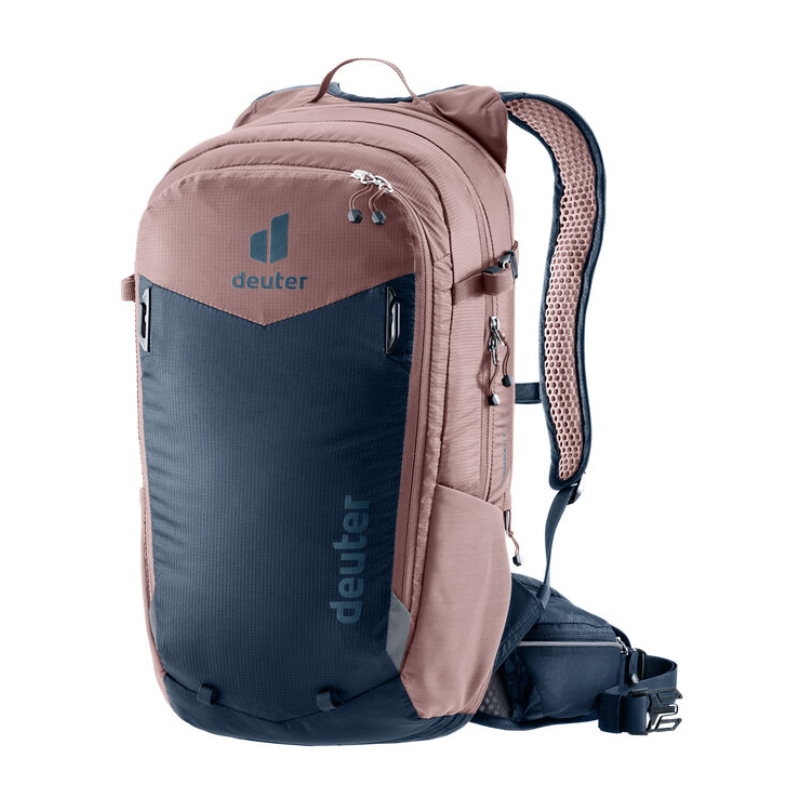
Well-made, comfy and versatile, its expandable capacity should enable more than enough kit to be carried for big days out in remote locations, and it doesn’t look out of place in the urban environment too.
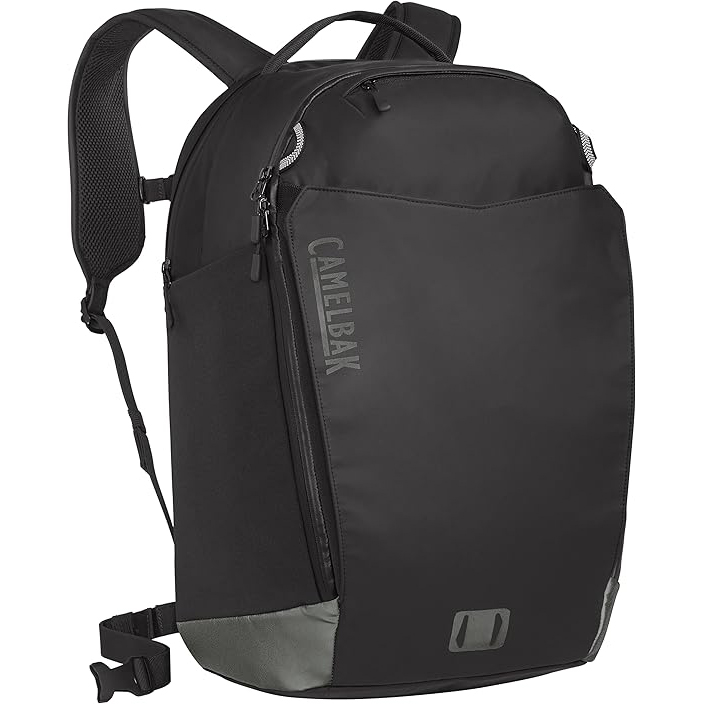
With a 30-litre capacity, the HAWG is at the larger end of the scale for commuting, but it is a great way to carry the kit around. There are lots of well-thought-out pockets for organisation and a weatherproof sleeve for protection. Carrying it is comfy, but the helmet straps weren't perfect.
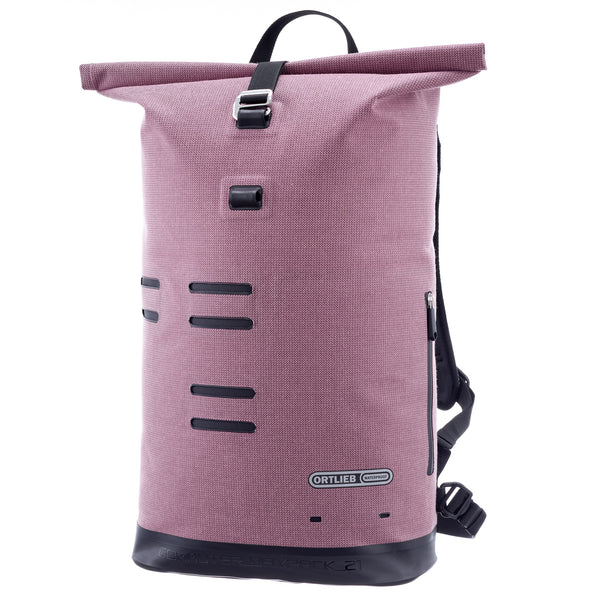
Ortlieb's expertise lies in making bags as waterproof as possible so your cargo will be very well protected from the elements inside. There is only one pocket, though (intended for tech), and the roll-top can snag on your helmet if the bag is full.
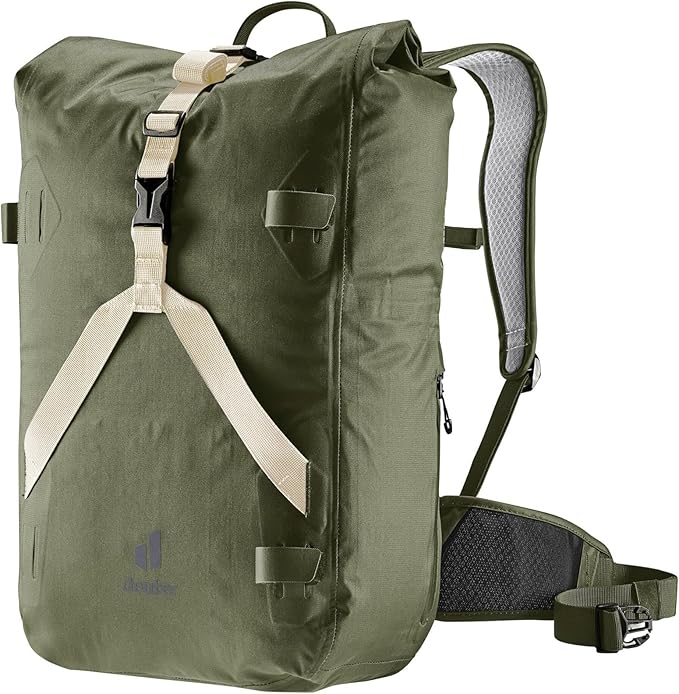
The Amager 25+5 is a high-quality German engineering backpack for cycling. It's incredibly comfortable and highly water resistant, and Deuter has absolutely nailed the basics with this one.
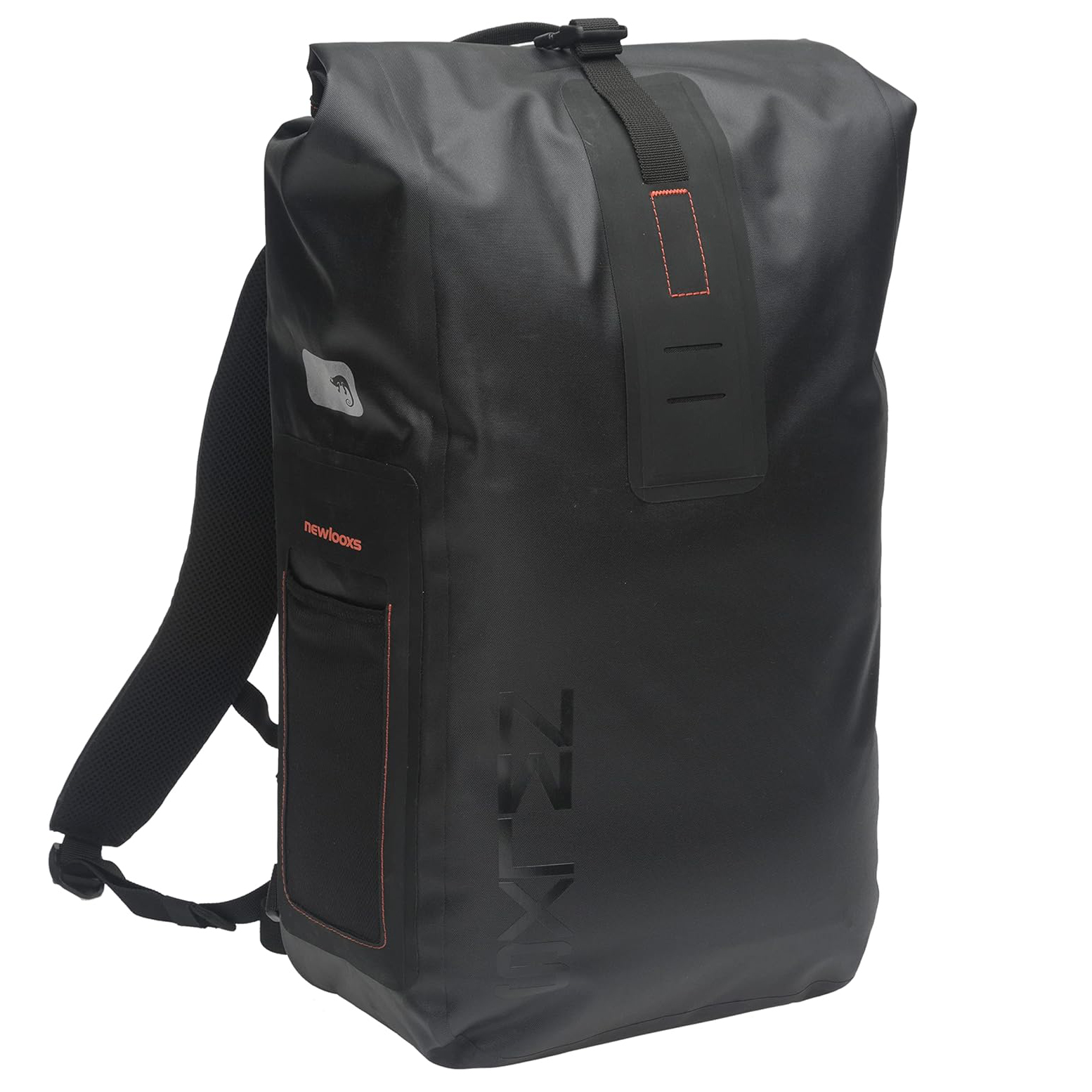
With shoulder straps and pannier rack attachments, the Varo is ideal for commuters who prefer to carry the weight on the bike as far as possible but then have a walk into the office. It's waterproof with a roll-top closure, but you need to make sure the straps stay clean, and it is a bit weighty.
Best commuter backpacks for cycling
Best Overall
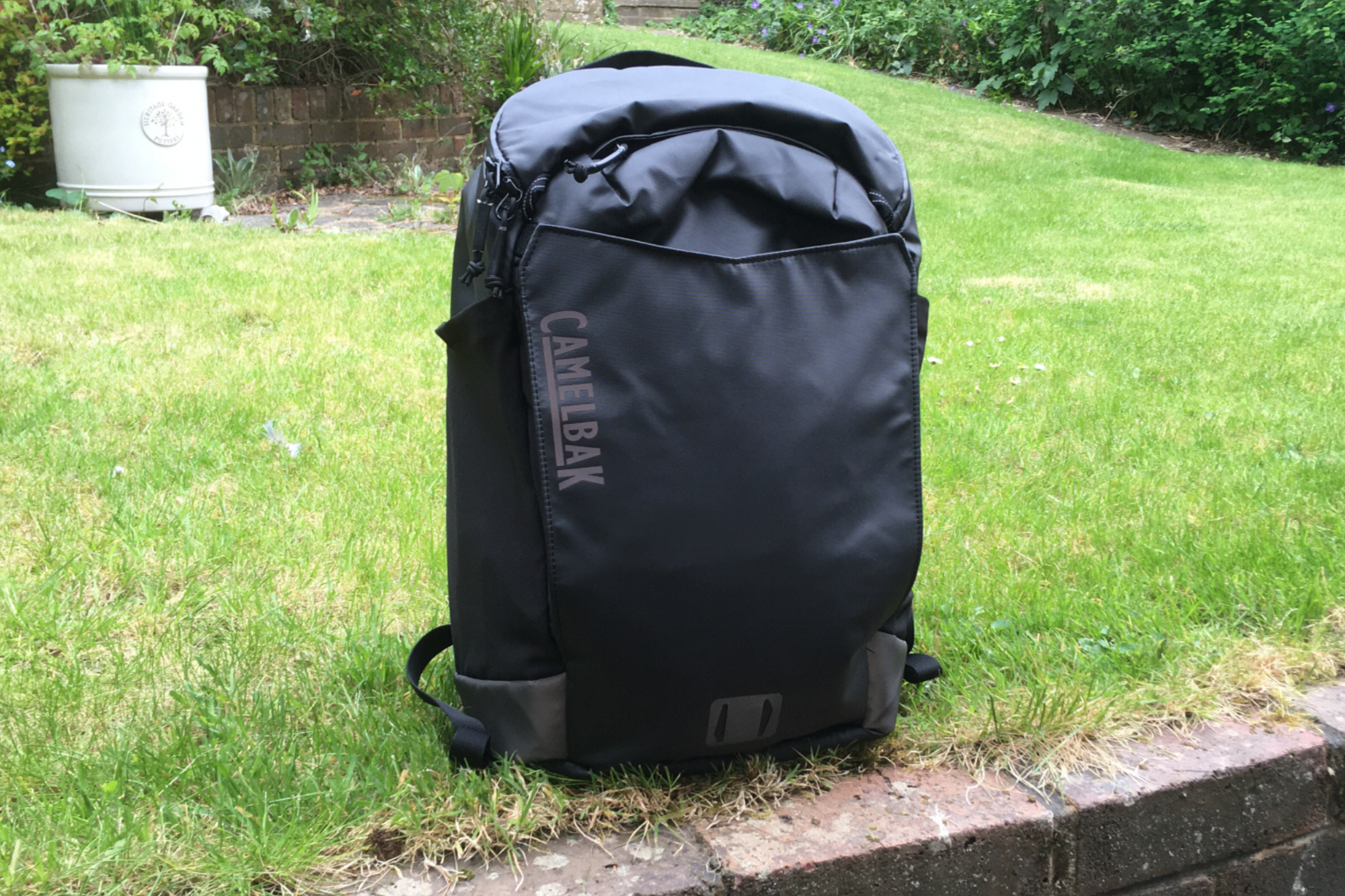
Specifications
Reasons to buy
Reasons to avoid
If you're looking to travel light, the CamelBak MULE 22 backpack is a stylish, weather resistant option for commuters.
But let's focus on what matters the most: pockets. Inside the main compartment, there is a weatherproof roll-top sleeve for a laptop or an A4-sized notebook. Over the lid of the bag, there's a handy zipped mesh pocket which we used for small, loose items.
The arm harness of each strap is also lined with useful pockets. The right side can take keys (with a key loop) or train tickets, whilst the other side is generous enough to fit a phone. In testing, we particularly enjoyed this feature as you can insert and remove your phone without having to take off the bag. In terms of specific dimensions, our tester was using a 145x70mm phone with the system without any issues problem.
The back panel has three separate zones which rest on your back and feature an air channel to help with ventilation and reduce the chances of a sweaty back. Another useful touch is that the side pockets can take a D-lock, which makes securing your bike when on the go a little easier.
Read more: CamelBak MULE Commute 22 backpack full review
Best small bag
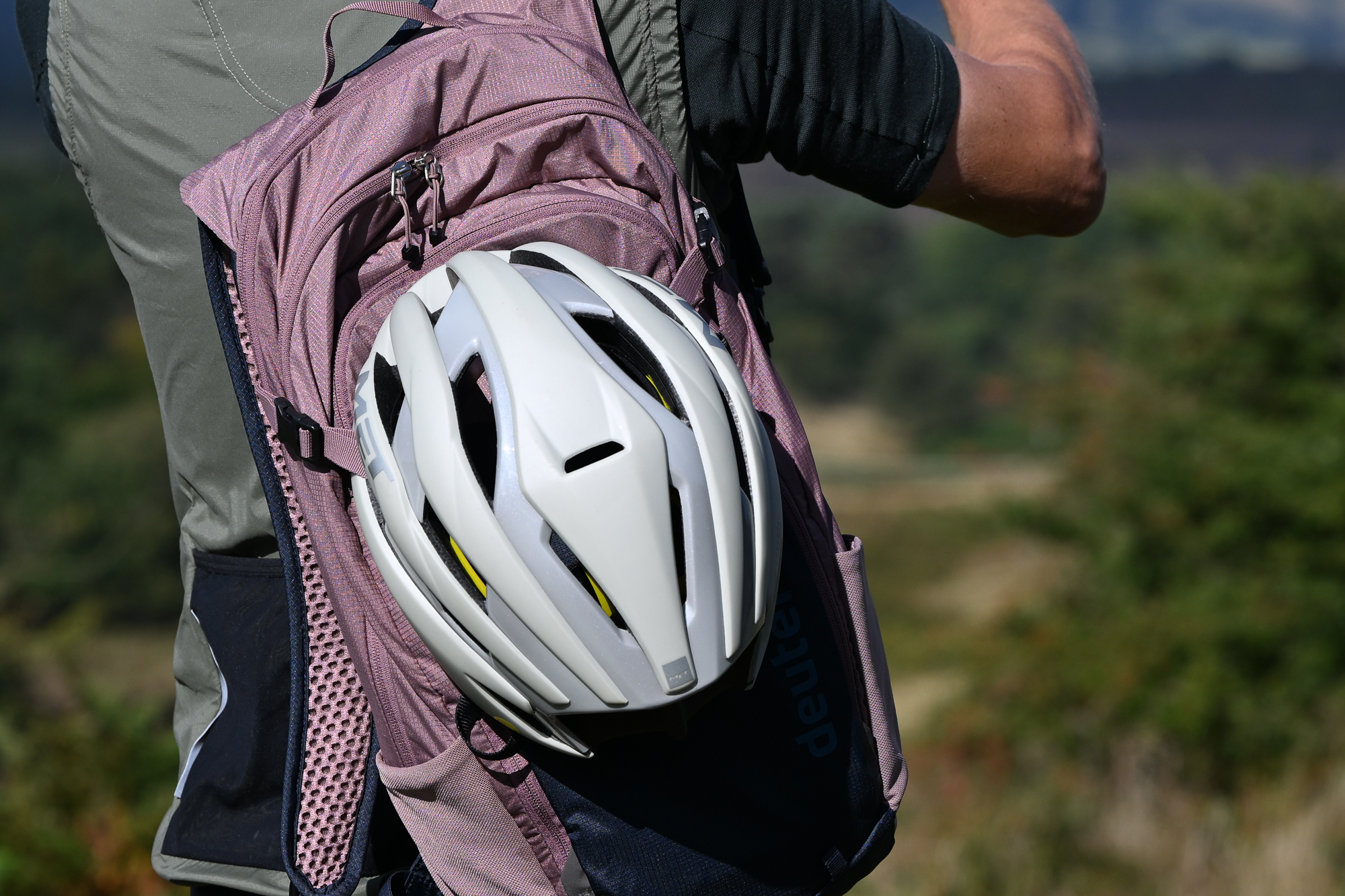
Specifications
Reasons to buy
Reasons to avoid
The Compact 14+3 backpack is designed for mountain bikers and gravel riders. As suggested by the name, it has a capacity of 14 litres, with an option to expand the main compartment by an extra 3 litres, achieved by undoing a 360° zip.
It uses the German brand’s Airstripes back system, which is essentially a series of ventilation grooves and an open channel that runs down the centre to allow air to flow more freely with the aim of preventing an overly sweaty back. In practice, we found that it worked as well as could be expected.
On the outside of the bag, there are two mesh pockets for water bottles, a zipped pocket and two compression straps that help to stabilise the load and can be used to attach a helmet to. Handily, there’s also a hi-viz rain cover, stored in a pocket at the bottom of the pack.
Access to the bag’s main compartment is via a U-shaped zip. Inside, you’ll find a water bladder sleeve. The smaller compartment contains a zipped pocket with two further pockets for a wallet and a phone, two additional mesh pockets and a clip for your keys.
We’ve used the Compact 14+3 backpack for plenty of gravel rides in the Peak District, where it proved to be comfortable and unobtrusive, with the straps keeping it pretty stable over some challenging terrain.
The range of internal pockets proved helpful, allowing me to keep my possessions organised, while the main compartment was plenty big enough to store some spare clothing.
Additionally, we’ve used the backpack for general travelling, where the design proved versatile enough. As for commuting, the backpack does lack a dedicated laptop sleeve, but otherwise it has the necessary features to make us think it would work well, including that aforementioned hi-viz waterproof cover.
Read more: Deuter Compact 14+3 backpack full review
Best for pockets

Specifications
Reasons to buy
Reasons to avoid
The HAWG cycling backpack comes with loads of pockets, including a weatherproof backpack sleeve, side pockets that will take a bike lock or a bottle, several reflective areas and a light loop.
The harness system is stable even when not using the waist strap and there's good airflow over your back. The straps are comfortable and come with tidy-aways so the ends don't flap around as you ride, but we found the helmet carry straps a bit fiddly to use.
We weighed the HAWG at 975g - lighter than Camelbak claims. If you don't need quite as much capacity though, it might be better to consider the 22 liter MULE, though.
Read more: Camelbak HAWG Commute 30L backpack full review
Best backpack for waterproofing
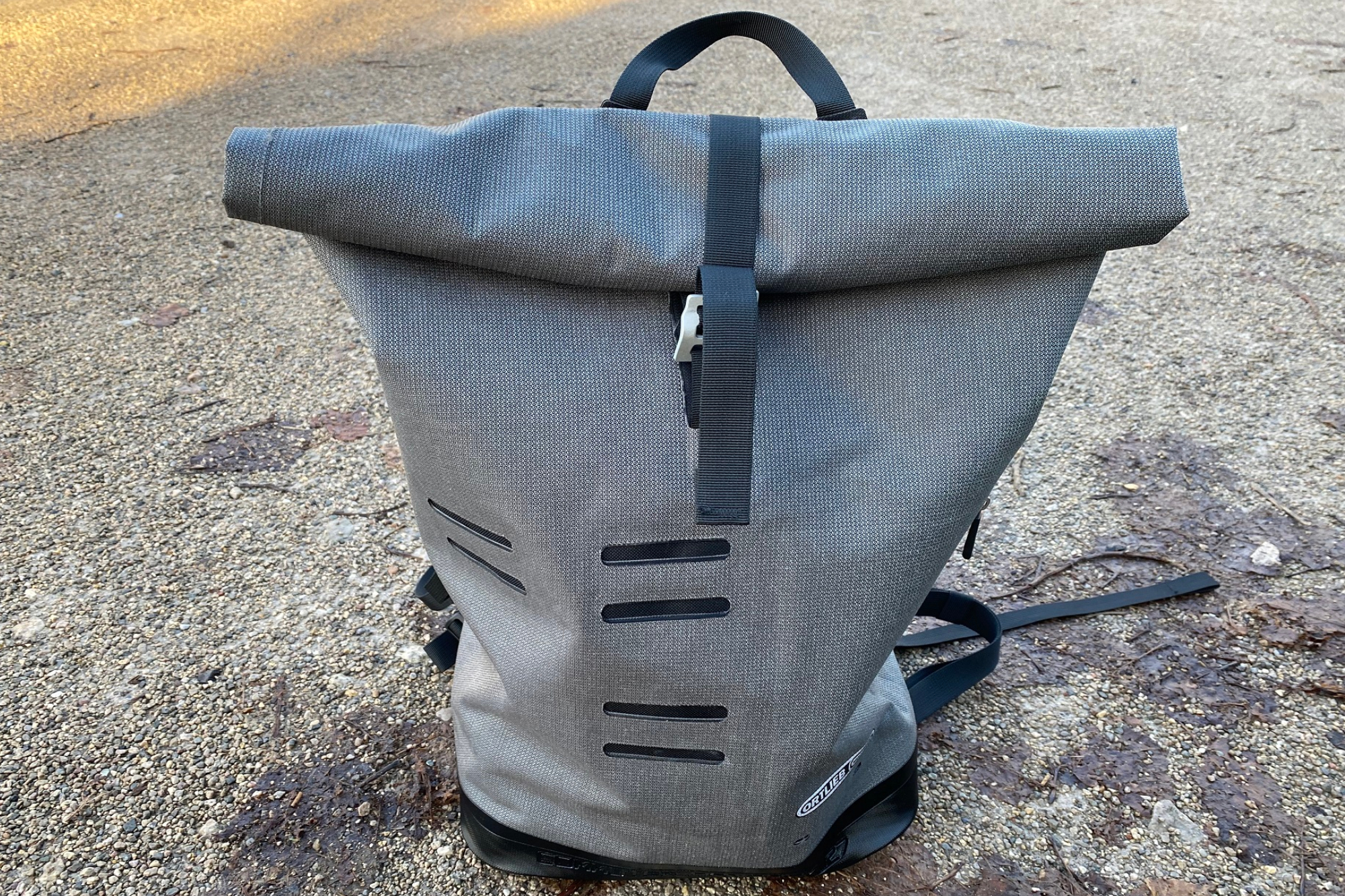
Specifications
Reasons to buy
Reasons to avoid
Ortlieb has been making high-quality, rugged and durable bike bags for over 40 years. The Commuter Daypack takes all of this experience and expertise into a 27 liter backpack for the trendy urban rider.
As you'd expect, the Daypack is extremely well-made and completely waterproof so you can be safe in the knowledge that your laptop and clean underpants are well-protected on the way to work.
Despite its minimalistic appearance, our tester found the Daypack comfortable to wear and well-ventilated. There's a large padded pocket for your devices but otherwise the bag is one large space that will swallow all your daily wares and a basket full of shopping.
If you're a bike packer, check out their Quick Rack for panniers
Read more: Ortlieb Commuter Daypack Urban Line backpack
Best for ultimate durability
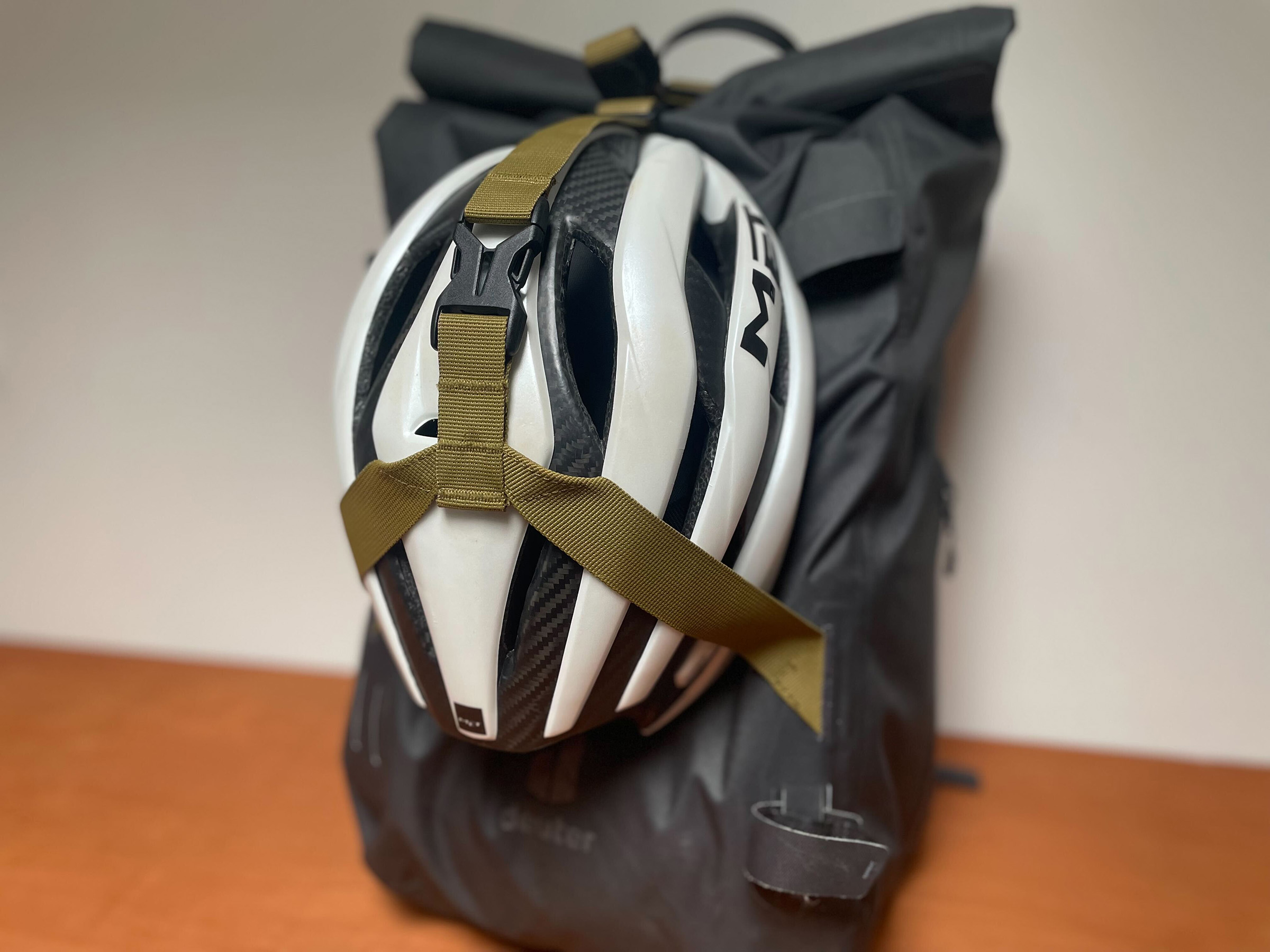
Specifications
Reasons to buy
Reasons to avoid
Let's get straight to it; overall, the Deuter Amager 25+ is a comfortable-to-wear bag with classic German quality construction and excellent detailing. These all add up to make this an incredibly usable bag.
This should be no surprise; Deuter’s bags are some of the best you can buy in the outdoor world, and the brand carries a lot of expertise and design into its riding bags. Deuter makes some of the best bags; indeed, the bags I have tested over the years have always impressed me.
This leads me to how it is to ride with. It's frankly excellent. It is nearly flawless aside from two very minor details. The first wouldn't have bothered me had I not used a subpar-quality water bottle, and that's it doesn't have a side pocket for this purpose. Given that it's a bag for riding, you likely put your bottle in a cage, but for off-the-bike, it means the bottle goes in the main compartment. Not ideal.
Once more, I offer a slightly nuanced view on what is a perfectly good backpack. However, as a magazine editor who travels frequently, I prefer a bit more segregation to organise my belongings during longer multi-day or big-day trips to save on faff and digging around in the bottom of the bag.
Read our full Deuter Amager 25+5 backpack review
Best backpack that doubles up as a pannier bag
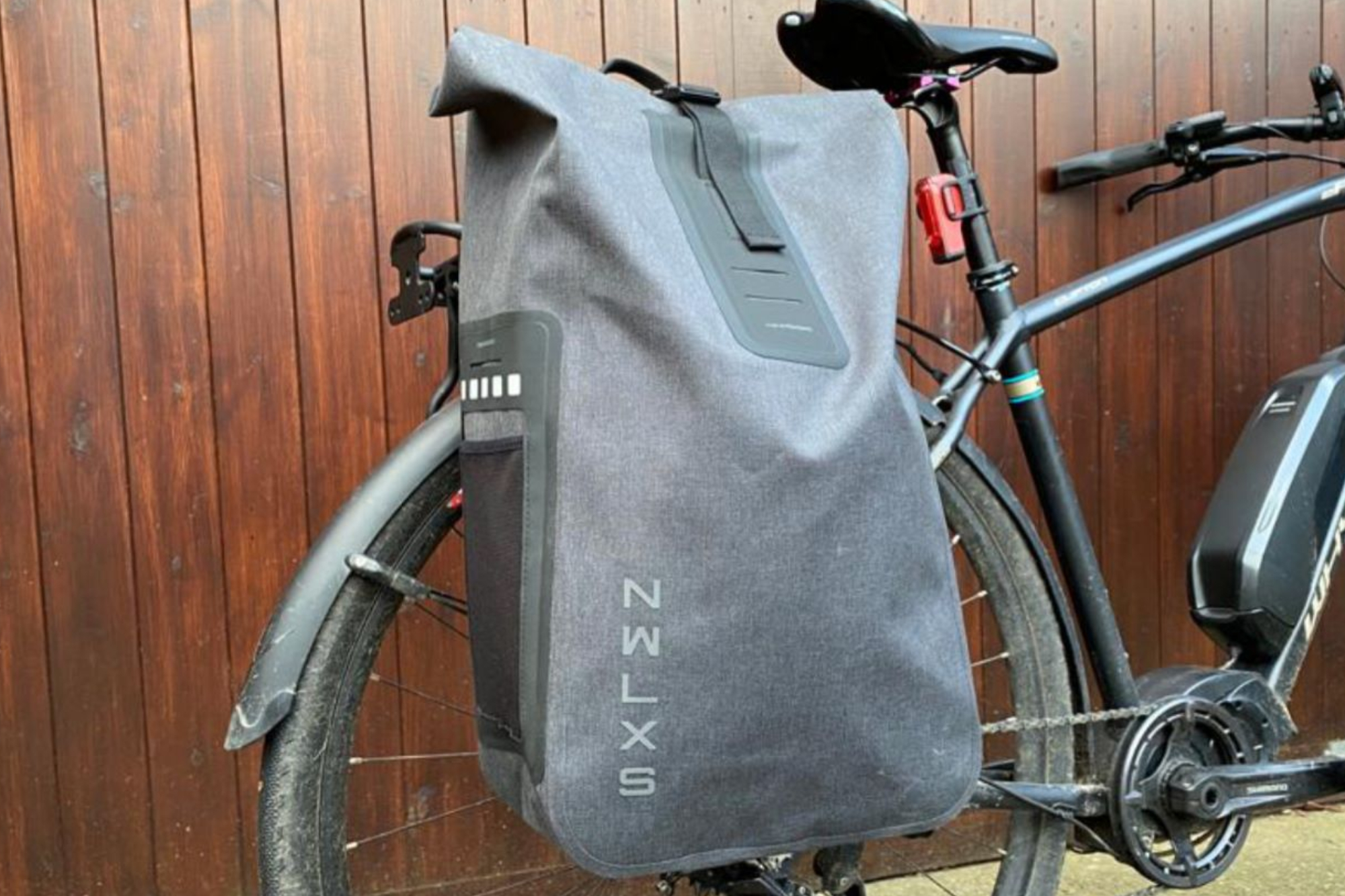
Specifications
Reasons to buy
Reasons to avoid
The New Looxs Varo does double duty as a backpack and a pannier thanks to removable shoulder straps and a built-in pannier rack mount. It's made of waterproof polyester with a roll-top closure and the seams are welded. The bag weighs 1.3kg and there's 22 liters capacity. Extras include side pockets and light loops.
The shoulder, chest and waist straps convert the Varo to backpack use. You can use it as a pannier with these attached, although they'll quickly get wet or dirty. As a backpack, we thought it was comfortable and well-padded and there's plenty of capacity.
Read more: New Looxs Varo backpack/pannier full review
Honourable Mention
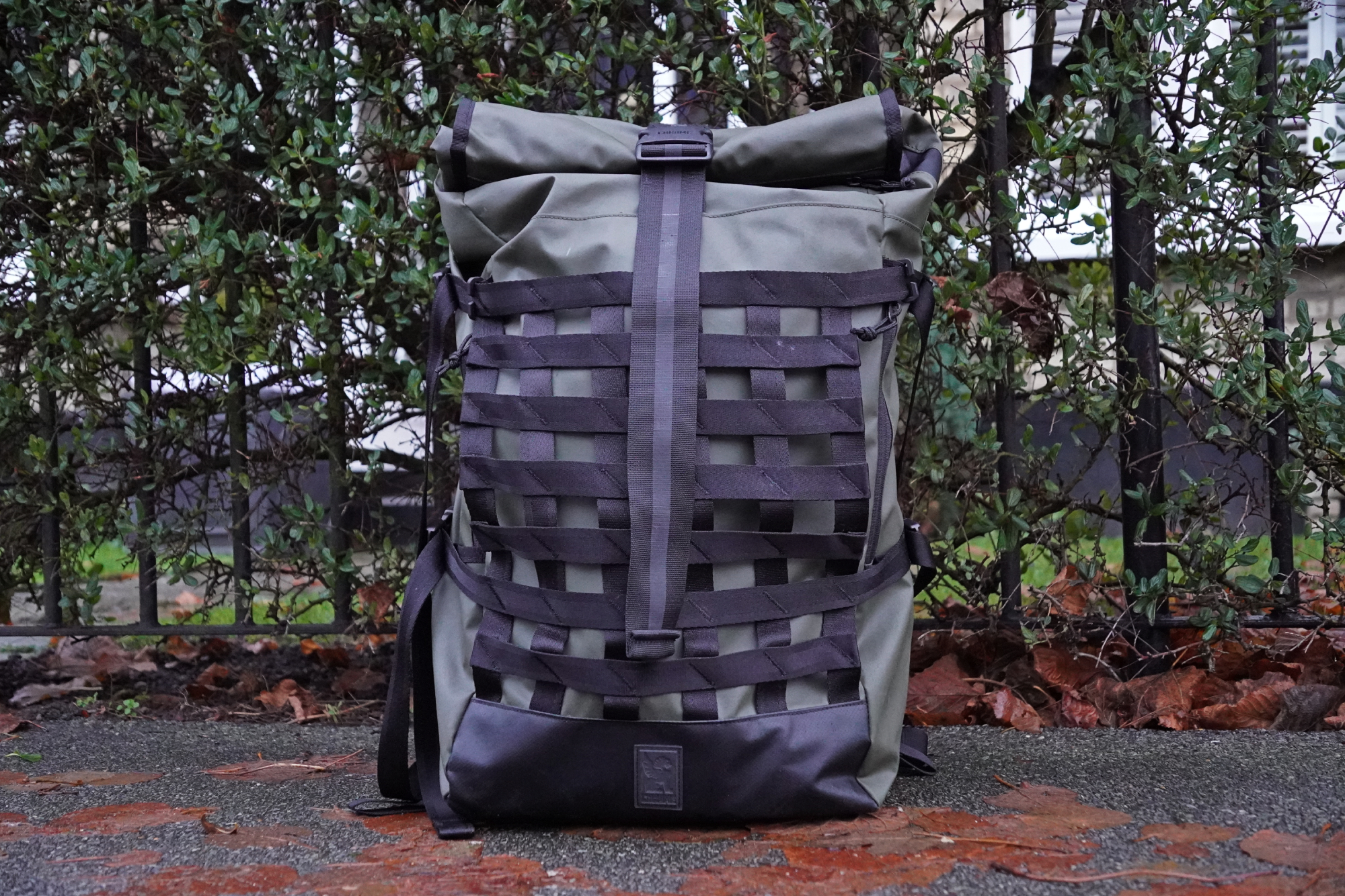
Eco-friendly, robust and impressively waterproof
This one is for cyclists who know they'll be throwing their bags around. We've tested several Chrome Industries products over the years, including pannier bags, cycling shoes, and the Urban Ex 2.0 backpack. We have always found their products to be robust, well-made, and designed, with a good dollop of urban styling.
With its 22-litre/5.8-gallon capacity, roll top, and buckle closure system, this rugged, waterproof Freight backpack is certainly built for all conditions. While it is expensive and incredibly heavy (2.3kg/5lbs) before you even load it up, the Barrage Freight is an expertly constructed backpack.
Read our full Chrome Industries Barrage Freight backpack review
How we test
A cycling-specific backpack needs to be comfortable on the bike. It also needs to be able to stabilize the load as well as keep it protected from the elements. Commuters might look for a dedicated laptop sleeve and reflective detailing, while gravel riders will want to have some internal pockets to allow them to organize their kits as well as the option of a water bladder sleeve.
With this in mind, all of the bags in the guide have been put through their paces by our team of reviewers. We’ve tested them over many rides, assessing them for comfort, stability and performance as well as durability and weather protection. Because a backpack by nature is a multi-purpose bag, we’ve also tested them off the bike, too, to see how they would fare as a regular travel bag.
Visit our How We Test page to learn more about how we review products and how our star rating system works.
Meet the testers
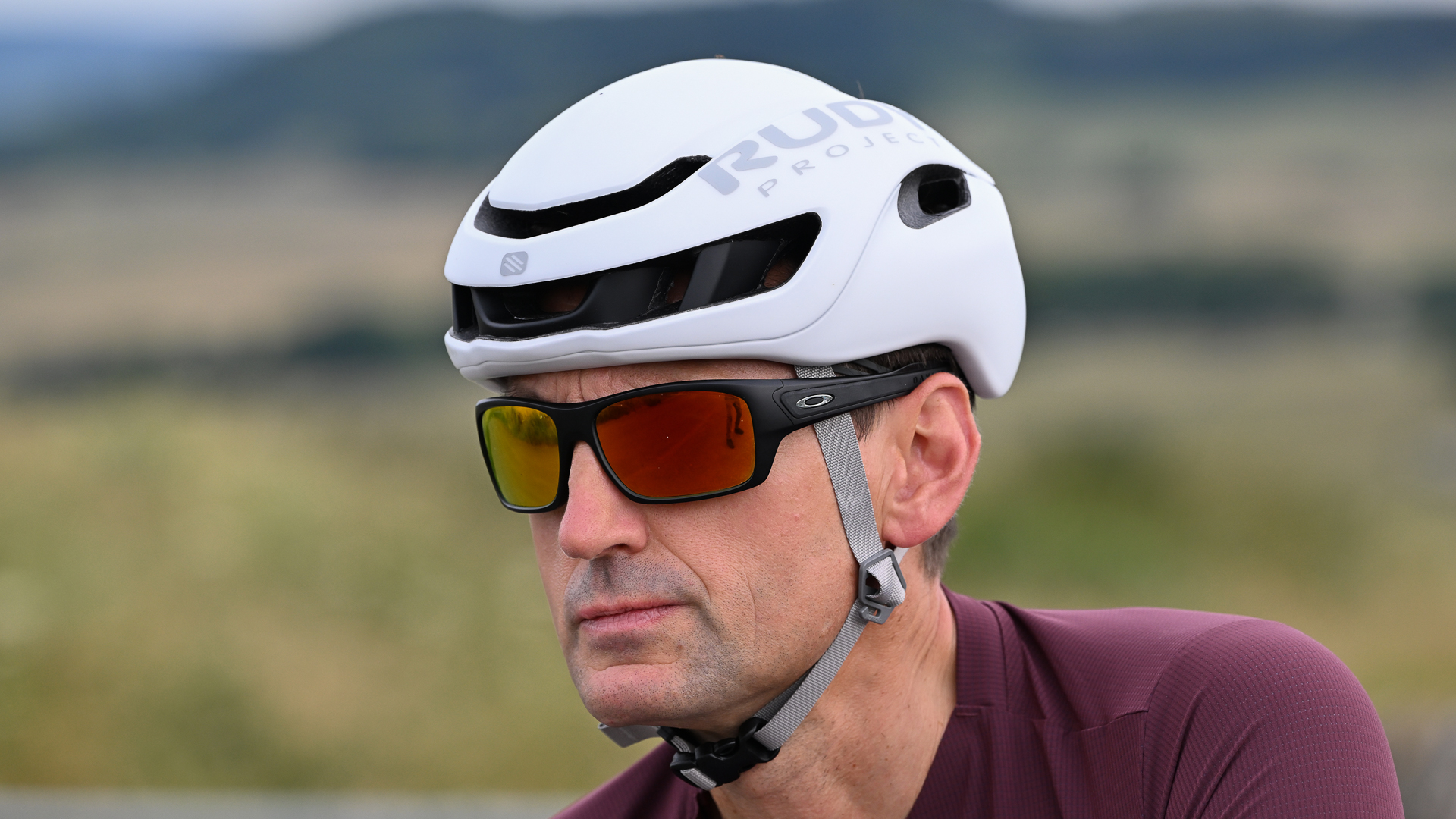
Tim has worked as a writer and photographer within the outdoor and cycling industry for over 20 years.
When at home, he spends much of riding time exploring the Peak District and its gravel trails, the ideal stomping ground to test a dedicated cycling bikepack. His work also entails a fair amount of travel, offering more opportunities to put a backpack or two through their paces.

Editor of Cycling Weekly magazine for over ten years, with 15 more years before that working on the title, Simon has seen it all. He’s lost count of how many Tour de France races he’s covered and continues to review products, testing them on his local lanes in Surrey, Sussex and Kent. Regularly commuting into the office means he is well-placed to test the merits of any dedicated cycling backpack.
How to choose
There's nothing stopping you from using a standard backpack when riding one of the best commuter bikes. However, those created with cycling in mind will tick a few boxes that might be neglected elsewhere. Here are the features to look out for:
Air channels for breathability
Chances are your body temperature will rise as you ride. Therefore, a good cycling-specific backpack will cater for this with channels at the rear or the use of mesh or more breathable fabrics.
Padded straps
You don't want the straps to put pressure on your back when you load up your pack, so look for padded straps that will promote comfort on the bike.
Chest/hip straps
Extra straps at the chest and/or hips will keep the pack in place - without these, you might find the pack swings from side to side or hangs over your shoulder when you get on the drops. These should ideally be adjustable, and some brands - such as Osprey - offer a greater amount of adjustability on female-specific packs so that the chest strap can fasten under or over the bust depending upon preference (as opposed to directly across).
Pockets
Everyone likes to organise their kit into appropriate compartments, right?! A quality cycling backpack will have a selection of pockets so you can keep your lunch away from the rest of your luggage. Sections designed for tyre levers, tubes and a pump will be helpful too, as well as zipped compartments for valuables and side pockets for easy-to-reach access.
If you're cycling to work, you might also want to look for a laptop pocket with padding to keep your tech safe.
Waterproofing
If you cycle commute on a regular basis, it's likely you'll find yourself forced to ride in the rain at some point. Many packs come with waterproof removable covers, whilst some are simply constructed from a waterproof fabric. If you're looking for a fully waterproof option, check for taped seams which will help to keep the droplets out.
Reflective details
Whilst the number one requirement when riding in the dark is a good set of bike lights, reflective details are a good idea and many packs will come with these.
Hydration system
More often a requirement for mountain bikers, a hydration system could come in handy for a roadie who dabbles in off-road riding like cyclocross or gravel bike adventures.
More mountain bike-orientated packs will often come with a bladder, whilst those aimed more at road cyclists may just have a compartment that will fit a bladder and a loop at the shoulder where a drinking tube can be stored if used.
FAQs
Should you wear a backpack when cycling?
Cycling with a backpack certainly has its pros and cons, while they are covenant, flexible and capable of hauling a decent amount of stuff, they can be heavy to ride with and make you sweaty.
It's best to consider what you need to haul and what facilities you have on your bike to use the alternatives. If you regularly find yourself carrying heavy or clunky items like laptops, shoes and clothing, it may be worth considering using a pannier bag and rack.
For lighter items such as gym kit, lunch or a few daily essentials then one of the recommendations above could be just the ticket.
What size backpack is best for commuting?
All the backpacks we have tested in this category have between 20 and 30 litres of capacity. This offers a nice middle ground that balances weight with storage capacity. There are plenty of smaller and larger bags available but we have found that this starts to introduce too many compromises.
The latest race content, interviews, features, reviews and expert buying guides, direct to your inbox!
Michelle Arthurs-Brennan the Editor of Cycling Weekly website. An NCTJ qualified traditional journalist by trade, Michelle began her career working for local newspapers. She's worked within the cycling industry since 2012, and joined the Cycling Weekly team in 2017, having previously been Editor at Total Women's Cycling. Prior to welcoming her first daughter in 2022, Michelle raced on the road, track, and in time trials, and still rides as much as she can - albeit a fair proportion indoors, for now.
Michelle is on maternity leave from April 2025 until spring 2026.
- Matt Ischt-BarnardEcomm and Tech Writer
- Luke FriendFreelance writer
